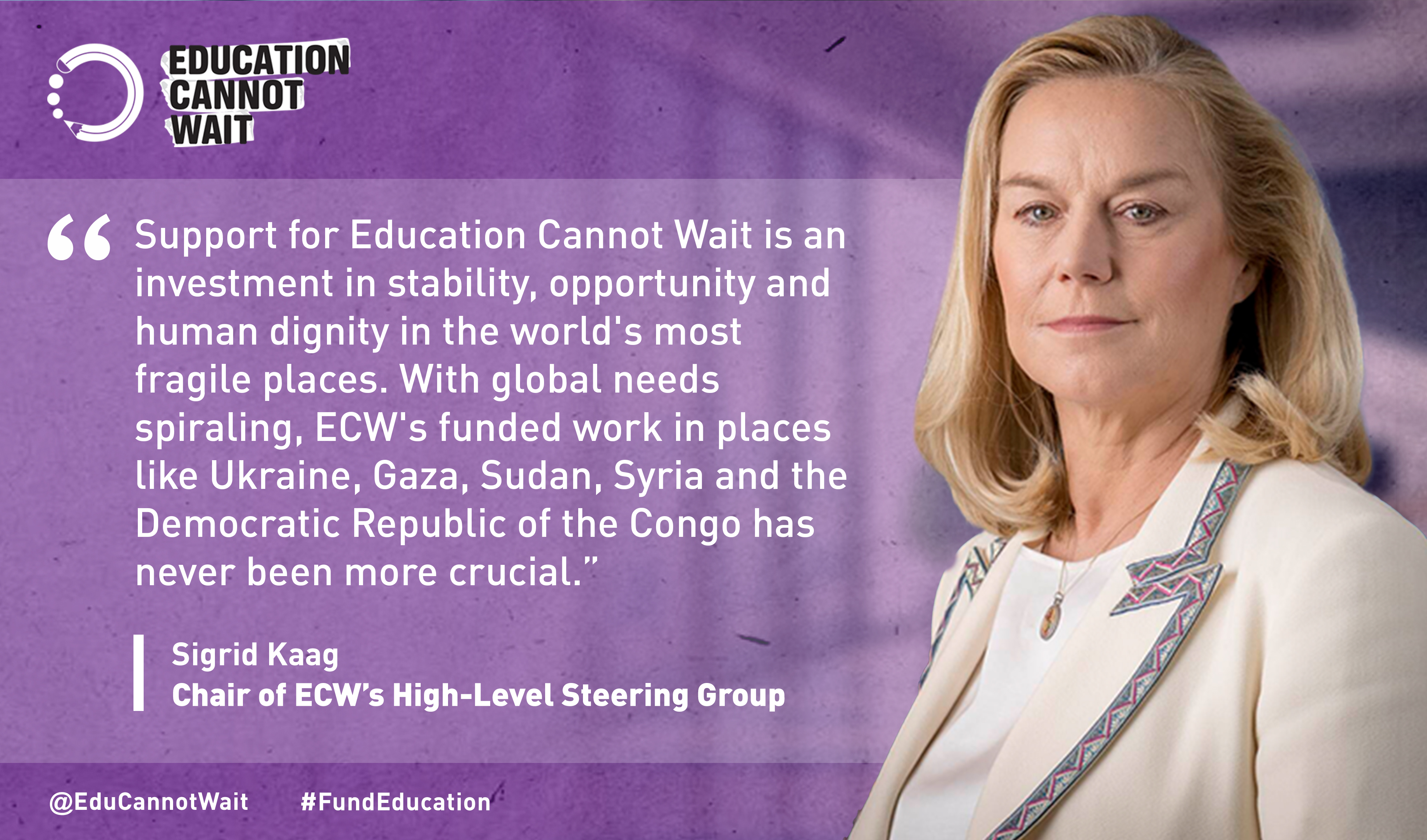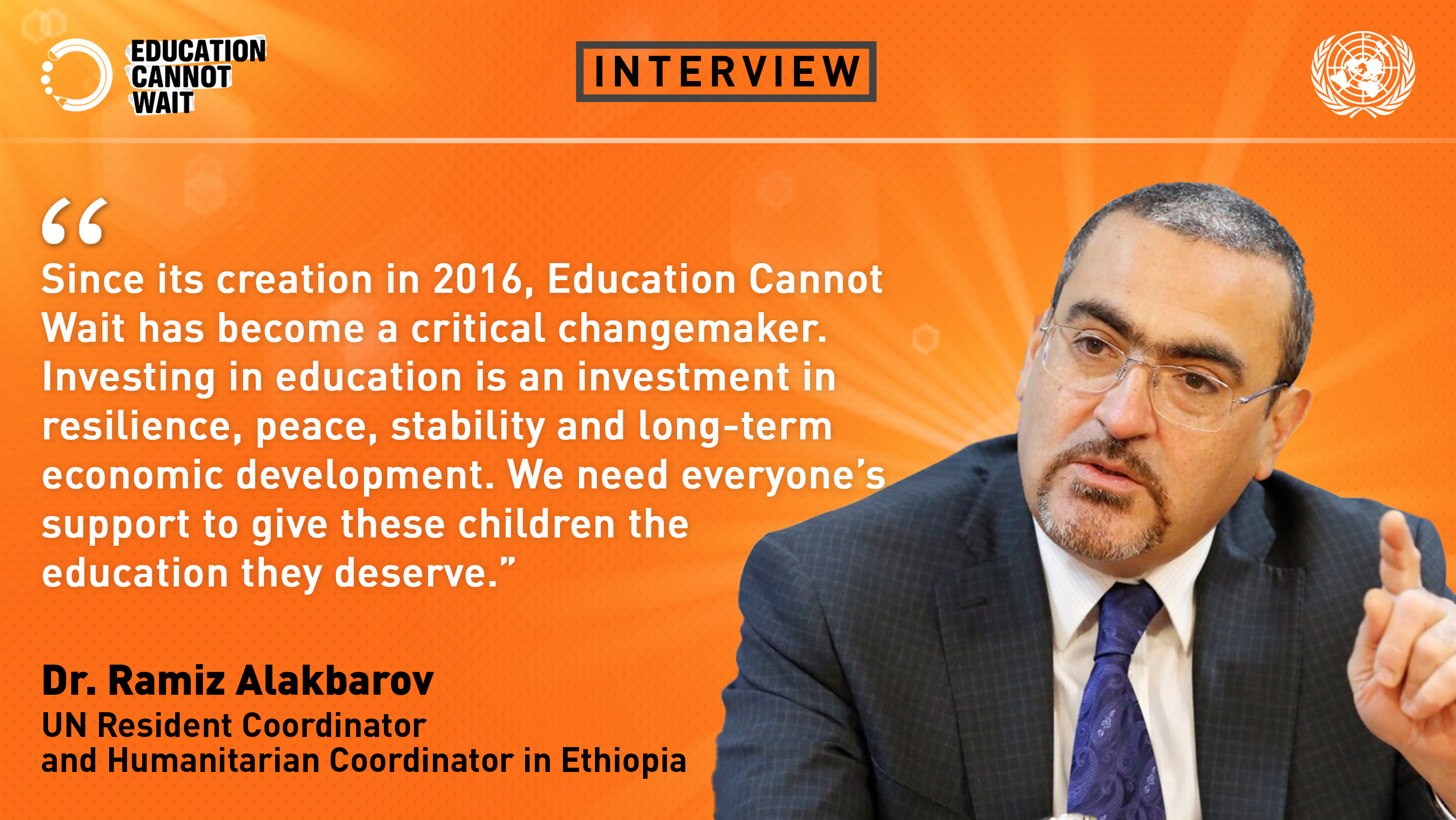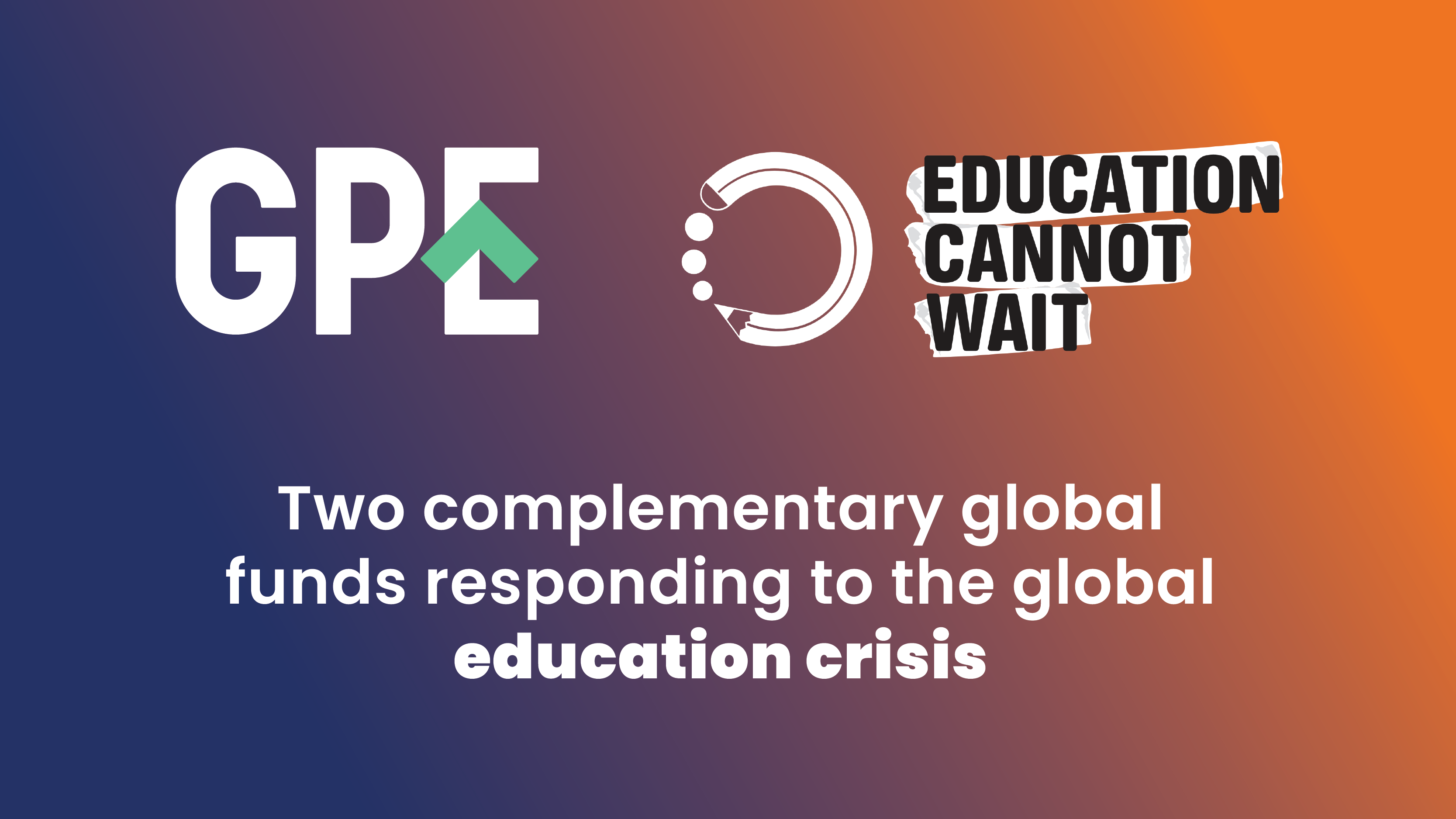A Holistic Approach to Security: The Impact of Education – Interview with Yasmine Sherif

As the world continues to evolve, new threats challenge our security: climate change, gender inequality, armed conflicts and more, no longer restricted to national borders. Hence, security needs to be understood not only as the absence of physical danger. We need to leave the realist theorist approach behind and consider the human, economic, and environmental dimensions of it. Yasmine Sherif, the Director of Education Cannot Wait (ECW) talks about these issues on an interview to Modern Diplomacy on March 17th, 2022.
What can be done to ensure girls and women globally have better access to education when they encounter systemic oppression (by their direct environment and their countries’ laws)?
To advance the inclusion and the equality of education of girls you have to be very affirmative. It is very important to address the barriers that make it difficult for girls, especially teenagers, to attend school.
What we do at Education Cannot Wait, is to take affirmative action. And we have made gender one of our priorities, it is very central to our work. We develop our programs together with donors, UN agencies and civil society organizations. The programs include training our partners and teachers to make them gender-sensitive and advocate for girl’s inclusion. We have set a clear target for all of our investments to reach 60% of girls.
How can the international community ensure the interests of each nation do not place humanitarian aid, human development and peace-building on the back burner?
By making education a priority, that is the best solution. A country won’t achieve sustainable development without eliminating extreme poverty or without gender equality or public access to health. Education is the very foundation to achieve all the other Sustainable Development Goals, and human rights. It is inconceivable to marginalize 50% of the population. If they cannot work, express their opinions or are unable to manage their livelihoods because they have no education it is impossible to achieve a single goal, peace, development, equality or equity. If you provide the right curriculum, the socioeconomic, psycho-social support and access to food a lot can be achieved. If we take this holistic approach in the most formative years of each child, including a strong focus on gender equality, there is a great chance of attaining sustainable development and peace.
Worldwide the efforts to restore from the effects of the pandemic have been focused on the economic sector, however what effects in other areas will happen in the long run?
Currently we are talking of 128 million children who live in conflict, crisis and as refugees. By leaving 128 million children without education across numerous countries the next generation will grow without education. These results are alarming because without formal education, there will be no livelihoods. And if you have so much inequity and injustice, people are disempowered; the entire generation is disempowered. Without people with secondary and higher education, without opportunities for human and socio-economic development, we will see a very violent world. It is all about creating equity in this world, and the best way to do so is through education. Not investing in children means perpetuating the vicious cycles of violence, poverty, hunger, inequalities, and misery.
What are the main threats of climate change? How can we prevent that marginalized populations such as women become more oppressed due to the effects of climate change?
When you have climate change, it gravely impacts your home, community, and country. Girls and women by default are the those who are left behind. Whenever tragedy hits, girls are paying a higher price. However, this does not mean boys do not suffer, but girls are the ones that are marginalized by social constructs and preferential treatment, in their family, and economy. If girls have a formal education, they stand greater chances of being protected of all threats. In 2050, 140 million people are expected to be further displaced by climate change in South Asia, in sub-Saharan Africa and in Latin-America. We must empower girls through education to withstand the pressure. We must give them hope, so they can rise out of that suffering and they can bring sustainable change, whether it is by mitigating climate change, through peace building, good governance or by building security.
With the gender gap worldwide increasing how can gender equality be a reality for all?
Well, we must never give up hope. I will say yes we can achieve gender equality, the question is how long it will take? The more we join forces and work in partnership, the more we show evidence how the global and national economy benefits from empowering women, the better. We need to show where we could be if we mobilize the female workforce through education, if every girl received 12 years of basic education, or even higher. This means we all have to speak about gender equality, including all genders. Gender equality refers to every marginalized human being irrespective of their sexual orientation or gender identification; we have to end discrimination and marginalization.
In your book you mention “we have not to date made connection between ourselves and the world at large and grasped the big picture of this interconnection”, what would you think it takes for the humanity to make such connection and finally act towards the bigger picture together?
All the suffering is there because we have not connected the dots between us and them. Mahatma Gandhi once said if you want to change the world you start by changing yourself. As long as we are driven by greed, competition, superiority, and egos, and our driving force is power, we will always make the wrong decisions. We need to go a little deeper, transcend and start looking at values, universal human rights, equality, and equity. We need to make an attitude change and make different decisions in our work, in our home. We need to create another narrative. We need to start thinking and acting from empathy. The linkage comes from the heart to the rest of the world.



